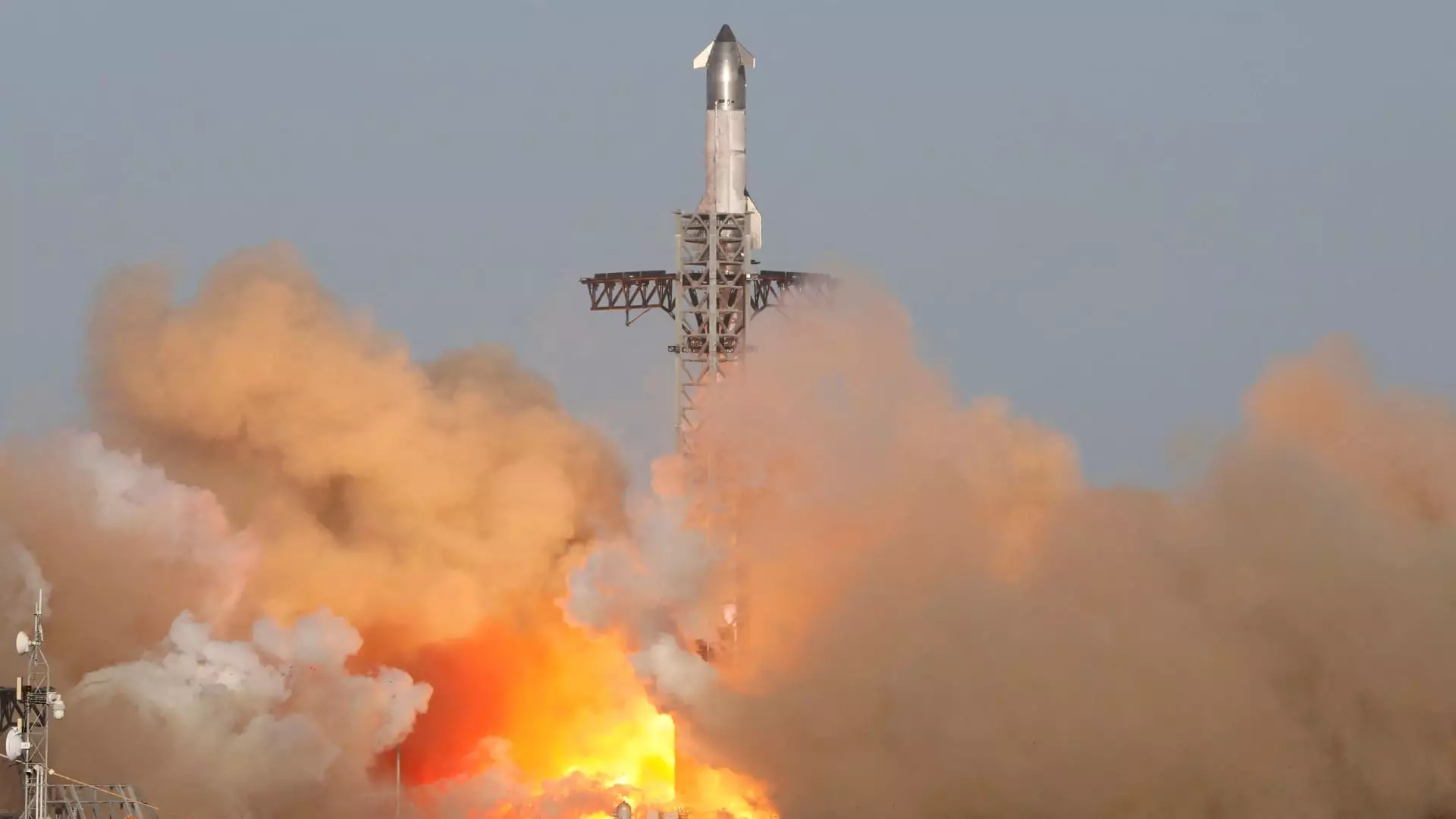In a stunning display of what happens when ambition outstrips caution, SpaceX’s recent failure during a Starship test flight has raised serious questions about safety regulations and the FAA’s oversight capabilities. On Thursday night, various Florida airports found themselves abruptly halting flights after a mishap involving the Starship. This incident is not merely an isolated setback; it’s a reflection of the growing trend where technology is racing ahead without comprehensive regulatory frameworks in place to ensure public safety.
Flying over busy metropolitan areas like Miami, Orlando, and Fort Lauderdale, space ventures must be held to the highest standards of safety. The FAA’s reaction—an immediate cessation of air traffic in affected areas—was necessary, but it shouldn’t have reached that point in the first place. This significant disruption not only impacted the airlines but also put a spotlight on how much risk we’re willing to tolerate in the name of innovation.
The Spotlight on SpaceX and Its Leadership
Elon Musk’s SpaceX has become synonymous with groundbreaking achievements, but with great power comes great responsibility. The company’s rapid ascent often overshadows the necessary checks and balances that should accompany such high-stakes endeavors. This latest mishap follows a previous incident earlier in the year, where a Starship broke apart mid-flight, sending debris down on operational air routes. SpaceX’s cavalier attitude in the face of multiple failures raises questions about corporate governance and ethical responsibility.
While Musk may be a visionary, it is imperative that the FAA reign in the unchecked ambition of private aerospace companies. The potential consequences of an oversight could be catastrophic. The need for comprehensive reviews and stringent adherence to safety protocols should take precedence over commercial greed or pride in innovation.
FAA’s Double-Edged Sword
The FAA’s latest statement mandating SpaceX to conduct a thorough investigation into the loss of the Starship vehicle during launch operations is commendable, but is it too little too late? The FAA has been criticized for being too lenient with private companies, allowing them to leapfrog through bureaucratic red tape under the guise of progress and innovation. This has resulted in a precarious balancing act, where regulatory compliance feels secondary to corporate goals.
The association of Musk with Trump, and his role as a senior advisor tasked with trimming government agencies, adds another layer to this ethical dilemma. Are decisions being made for the safety of the public, or are they being influenced by corporate interests that prioritize expansion over careful scrutiny? The FAA must navigate these treacherous waters with caution.
The Risk to Air Travel
The aviation industry is a complex web of operations and regulations designed to ensure that passenger safety is paramount. However, when an errant rocket can rain debris down over active air traffic routes, it exposes a vulnerability that must be addressed. Not only does the FAA need to step up its regulatory scrutiny over companies like SpaceX, but also consider the larger implications for the aviation industry as a whole.
With private aerospace ventures constantly pushing the envelope, should commercial airlines be forced to divert flights due to space test failures? The competitors in the airspace are not just NASA and SpaceX; they include commercial airlines and private planes, all of which demand safe, uninterrupted operations. The ramifications of such disruptions are considerable—passenger discomfort, economic losses, and the erosion of trust in the aviation system.
The Future: Balancing Innovation and Security
As we forge ahead into an age dominated by private space exploration, there must be a recalibration in how oversight bodies like the FAA operate. Real progress should not come at the expense of public safety or air travel reliability. We need an environment where innovation is paired with rigorous safety protocols, and where accountability is the norm.
We stand at a pivotal moment; if the FAA fails to tighten their grip on companies like SpaceX, we could be setting a dangerous precedent. We cannot let the lure of technological brilliance overshadow the fundamental requirement for safety in our skies. The stakes are too high, and the public’s trust, once broken, is not easily restored.


Leave a Reply